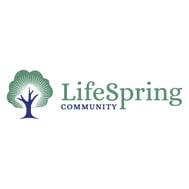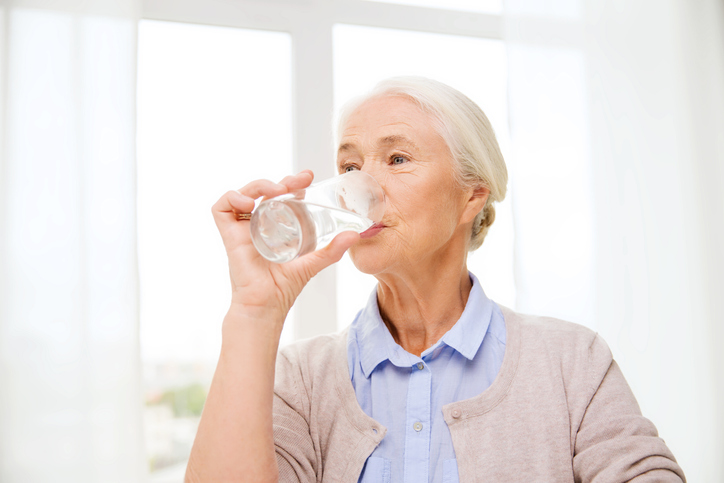Often, we rely on our medical team for advice on the most important health decisions we make, yet when it comes to nutrition advice, sometimes there is a misunderstanding in how we think we should put their recommendations into effect.
A recommendation such as “Increase your hydration,” and “increase your protein,” are suggested to seniors during a visit to the doctor’s office… But adequate information may not be given to gain an understanding on how and why to do this.
Let's explore why proper hydration and daily protein intake is so important—and how to go about accomplishing them.
What Are the Causes of Senior Dehydration?
Dehydration occurs when a person loses more water than they take in. Adequate fluid allows the body to regulate temperature through sweating, maintain blood pressure and eliminate bodily waste.
Dehydration in one’s senior years is especially common for a number of reasons:
Medications
It’s not uncommon for seniors to be on several medications at any given time. Some of these may be diuretic, while others may cause patients to sweat more.
Decreased Thirst
A person’s sense of thirst may decrease as they age. In addition, seniors may have a harder time being mobile as a result, getting up to get a drink when they’re thirsty, or they may rely on caregivers who may not sense that they need fluids.
Decreased Kidney Function
As we age our bodies lose kidney function and are less able to conserve fluid (this is progressive from around the age of 50 but becomes more noticeable over the age of 70).
Illness
Vomiting and/or diarrhea can quickly cause elderly dehydration.
Indications of Elderly Dehydration
Dehydration is a common condition among seniors-and can result in a variety of symptoms, including:

- Dizziness and Headaches
- Fatigue
- Dry mouth
- Dry skin
- Sensations of heat or cold
- Low blood pressure
- Low urine output
- Constipation
Symptoms such as these can be greatly reduced or eliminated completely simply by properly hydrating.
Nutrition Tip #1: Increase Hydration
The exact amount of fluid required will vary from person to person-depending upon their unique circumstances. But the general rule of thumb for those who are 65 years or older is to drink eight 8-oz glasses of water (or other fluid) daily.
Generally, a senior might easily meet the recommended hydration mark of eight 8-oz glasses daily. Here’s are a few approaches to accomplish this recommendation.

- Drink 1 glass of fluid with each meal and one in between meals to make sure you get enough.
- Drink one glass of water right before bed-which can help prevent nighttime muscle cramps.
- Get into the habit of keeping a water bottle handy, throughout the day. Take it with you when you go for a walk or go to an appointment with the doctor or hairdresser. Keep the water bottle in your purse, backpack, or strapped to your belt.
Note, your urine should be light in color, as the darker it is, the more at risk of dehydration you are.
High Water-Content Fruits & Veggies
Though drinking water is an important part of proper hydration, it's not the only way to get fluids. Liquids of any kind, along with high water-content foods also help with staying hydrated. Here are a few to consider.

- Herbal teas such as chamomile, peppermint, ginger, and lemon balm.
- Soups, vegetable broth, and organic bone broth (which is also a great source of protein).
- High water-content fruits such as watermelon, strawberries, cantaloupe, peaches and oranges.
- High water-content vegetables such as cucumber, celery and lettuce.
Nutrition Tip #2: More Protein
While staying properly hydrated is of prime importance what's equally important is your daily intake of protein.
Why Is Protein Important?
The body uses protein to build and repair all of its tissues. Protein provides the building blocks for bones, muscles, tendons, ligaments, cartilage, skin, and blood.
Protein is also vitally important to the immune system-which is responsible for preventing disease. As the body ages, consuming adequate protein becomes even more important.
How Much Protein Do Seniors Need?
The recommended dietary allowance (RDA) for protein intake is 0.8 grams of protein per kilogram (2.2 pounds) of body weight per day.
- For a 150-pound senior woman, this translates into eating 55 grams (1.9 oz) of protein daily.
- For a 180-pound senior man, this means eating 65 grams (2.3 oz) of protein daily.
On average we could say that two ounces daily of high-quality protein is a good rule of thumb-with slightly more for men than for women.

Tips & Guidelines for Getting More Protein
Here's how you can meet the recommended daily intake of protein:
- Add a good protein source with each meal. For example, one egg white has 7 grams of protein, 1 string cheese has 8 grams, and a can of chicken or tuna has close to 40 grams.
- Excellent sources of protein include eggs, fresh salmon, fresh or canned tuna, lean beef, chicken or turkey, and dairy products.
- Excellent vegetarian protein sources include tempeh (fermented soy), lentils, chick-peas, almonds, walnuts, sunflower seeds, chia seeds, hemp seeds, quinoa; along with eggs, yogurt and cottage cheese.
- Proteins enhanced with probiotics (that help digestion) include miso, tempeh, yogurt, cottage cheese, and kefir. Be sure to look for the "live active cultures" label-to make sure you're getting living probiotics.
- If your loved one has difficulty swallowing, they may benefit most from a liquid drinkable form of protein, such as:
- Multi-collagen protein powder;
- Organic whey protein powder;
- Caprotein goat milk protein;
- Or (as mentioned above) organic bone broth.
Sample Menus & Meal Tips
For support in creating healthy and appetizing meals-that incorporate your new understanding of hydration and protein sources-have a look at the excellent sample menus for older adults provided by The Institute of Aging.
Ensuring proper daily intake of fluids and protein will lead to maintaining good health. We welcome your questions or comments - - please feel free to contact us.

